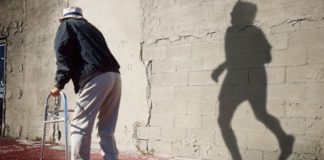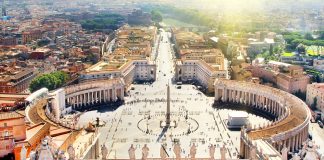Against the current
Over the last few decades, the picture of family life has undergone dramatic changes. The pervasiveness and normalization of divorce are just two of these changes.
Religion is good for you—really?
Religion has often been maligned in both the press and popular culture. But could believing give you an edge in life?
A generation that breathes anxiety
“You are always afraid people will judge you or know your weakness. It’s like being totally naked in front of a huge crowd,” says Bruno Feldeisen about the hidden struggle he had with anxiety.
Is the end of something better than its beginning?
The question, "Is the end of something better than its beginning?" nuances the statement of Solomon, who is considered in the Bible the wisest man who ever lived.
What is depression, and why should it be treated?
Imagine yourself entering a shopping mall with your sunglasses on. Even though the lights are shining brightly, you cannot see them. Everything around you is dark and cold. But as soon as you remove your glasses, the world comes alive: the windows of the shops shine attractively, you see the brightly-coloured clothes, and the dazzling screen of the phone blinks with an incoming...
The relativity of time
Time can exist in many forms—work time, free time, leisure time—and it has a lot of possessive adjectives: my time, your time, our time. The relativity of time can often lead to confusion because of the accompanying mixture of emotions, such as fear, joy, satisfaction, or expectation. It was this relativity of time that led me to need to define it in my...
How to study the Bible properly
Do your best to present yourself to God as one approved, […] who correctly handles the word of truth. (2 Timothy 2:15)
The secrets of a successful failure
Not many management books can be read with the pleasure of reading a novel, because few are so well written. Donald Keough's book is one of those few.
Lou, the woman with no regrets left
Any sacrifice is hard to understand from the outside. But it's even harder to understand how sacrifice can be a choice that brings joy to the person making it. The easiest people to include in this category are, of course, mothers. For them, the sacrifices never seem too many or too hard. Even more amazing are those mothers who raise other people's unwanted...
Don’t let suffering define you
It’s strange how popular the saying What doesn’t kill you, makes you stronger is, when it’s obvious that it is not what hits you that makes you stronger, but the way you take the hit.
The disgrace of (anti-)Catholicism
This topic seems to be a matter of picking through the rubbish in order to survive. Who cares about Protestant protest today? Anti-Catholicism, like anti-Protestantism, represents natural and culturally legitimate attitudes that can be judged by their motivation, spirit and content—aspects that are apparently obscure but, when examined, become very transparent.
Kids need more sleep than you think
In young children, we know having inadequate sleep can affect their mood. As your child grows older, the effect of lack of sleep worsens to the point where they become at higher risk of mental health issues and academic problems. Not only that, a habit of staying up late can also negatively impact their health and wellbeing.
Thinking errors: What do we do with destructive thought patterns?
What we think about ourselves, over time, becomes our reality. This is a good enough reason to identify thinking errors left running in the background and to seek out strategies for healthier thinking.
The truth about ourselves
History doesn't resemble Hollywood films. However self-evident this statement may be, it still comes as at least a partial surprise to many who imagine that history, while not quite like the movies, is still pretty close to the dramatic depictions.
Can too much salt (really) affect your health?
Could it be true? Are we eating too much salt? Is too much salt dangerous or beneficial?


























